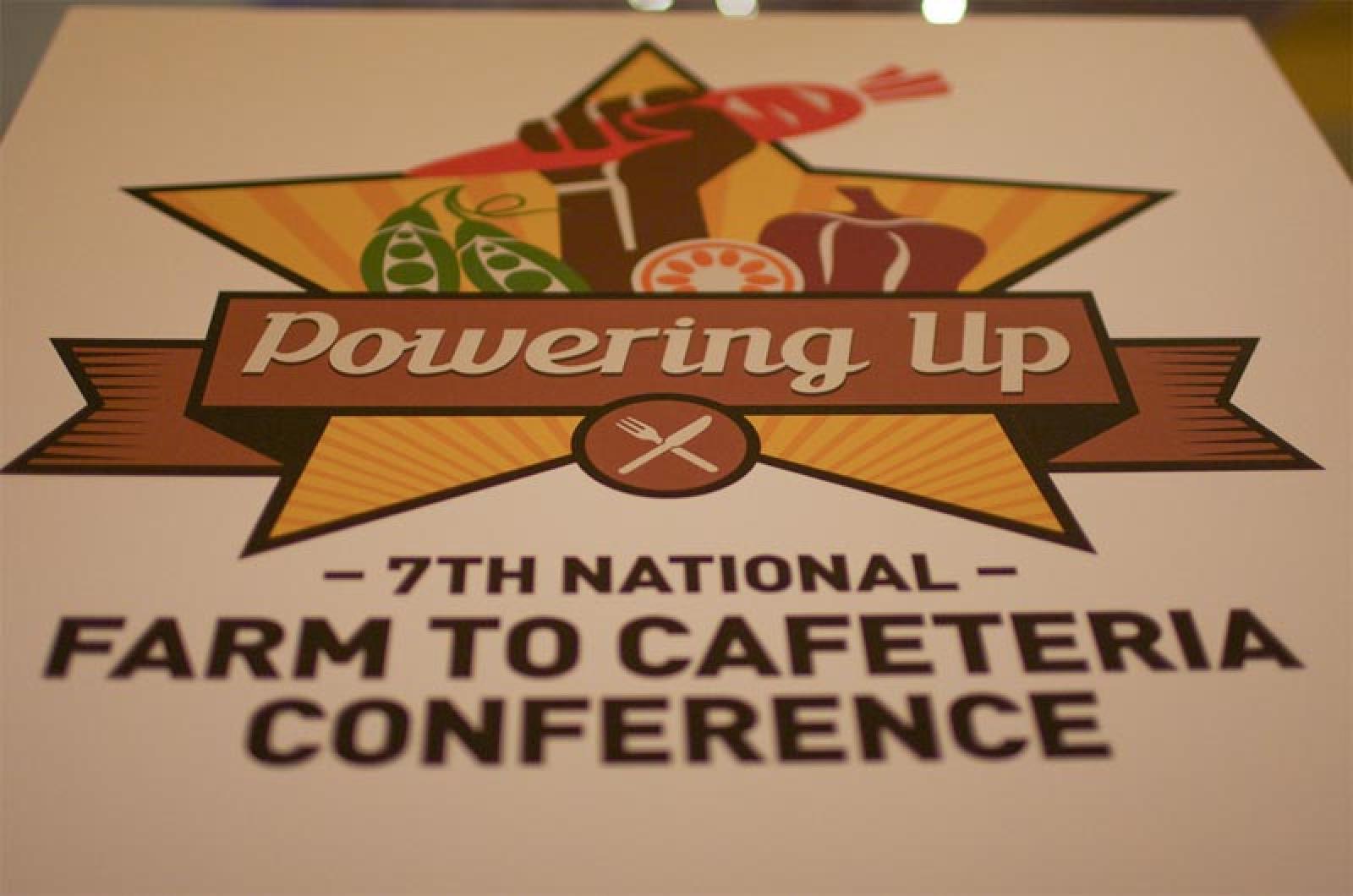In April, six of us from Island Grown Schools were able to travel to Austin, Texas, for the seventh National Farm to Cafeteria conference. We joined 1,100 other farm to school advocates from across the country to share stories, triumphs and challenges in bringing school gardens, healthy food and farm-based learning to children.
Over the course of four days, we gained a sense of the remarkable scope and diversity of people doing this work. All together, the farm to school movement in our country is active in 38,629 schools, interacting with some 23 million American children. Joining us in Austin were more than 100 twenty-somethings wearing the purple and orange T-shirt uniform of Food Corps, a branch of AmeriCorps that does school garden service in public schools across the U.S. There were teachers from Arkansas, cafeteria directors from St. Paul, hospital directors from Connecticut, school nurses from Alaska, food distributors from New York and farmers from Hawaii with plumeria flowers tucked behind their ears. There were public employees from a host of different state agencies and from the USDA. And everyone brought with them a unique perspective and inspiring stories to tell.
We didn’t just get to learn from these wonderful people — we were also inspired by the local food systems work happening in the city of Austin. We visited the Sustainable Food Center, the local food hub that purchases food from area farms, brings it together in one place, and processes and distributes it for local schools, restaurants, and grocery stores. We toured the Children’s Hospital that not only serves fresh, local food in their cafeteria but also hosts an on-site farmer’s market, healthy cooking classes for teenagers and has a campus filled with food-producing gardens. We met with local elected officials in city hall and state representatives in the state capitol building to hear about the work they are doing to pass local ordinances and state legislation to support local food sourcing for schools and other institutions, including their own offices and agencies.
And we were able to share stories from the work we do in the schools here on the Island. Nicole Cabot, IGS coordinator at West Tisbury School, and I made a presentation about our Harvest of the Month program, along with an amazing group of women from California and Vermont who run similar programs. We spoke in a huge room filled with farm to school leaders who were so excited by this program and what we’ve been able to do with it here on the Vineyard that they couldn’t wait to get home and get it started in their own communities.
At the ending plenary, we heard from the mother of the farm to school movement, Alice Waters from the Edible Schoolyard in Berkeley, Calif., and also from Jim Hightower, former Texas commissioner of agriculture. Mr. Hightower had us all in stitches, standing in front of the massive crowd in his big white cowboy hat. In his speech, he quoted the motto of his local hardware store: Together, We Can Do It Yourself. And that was exactly how we felt as we headed home to the Vineyard. As part of this mighty and diverse network of farm to school practitioners, and with the new connections , ideas and friends we’d made at the conference, we were ready to bring our work with Island children forward in even stronger, more creative and inspired directions.
Some next steps we’re excited to pursue include working with schools and other local and regional institutions to pool purchasing power to bring more locally and regionally grown food to our community; expanding and deepening our work with our youngest and oldest students and their families, in preschools and high schools; working with Island stakeholders to advance the concept of a local food hub; and supporting state level legislation to strengthen and grow the farm to school movement in Massachusetts.
Gazette contributor Noli Taylor is director of Island Grown Schools, a program of the Island Grown Initiative. For more on what’s happening in the national farm to school movement, visit the website of the National Farm to School Network, farmtoschool.org.




Comments
Comment policy »